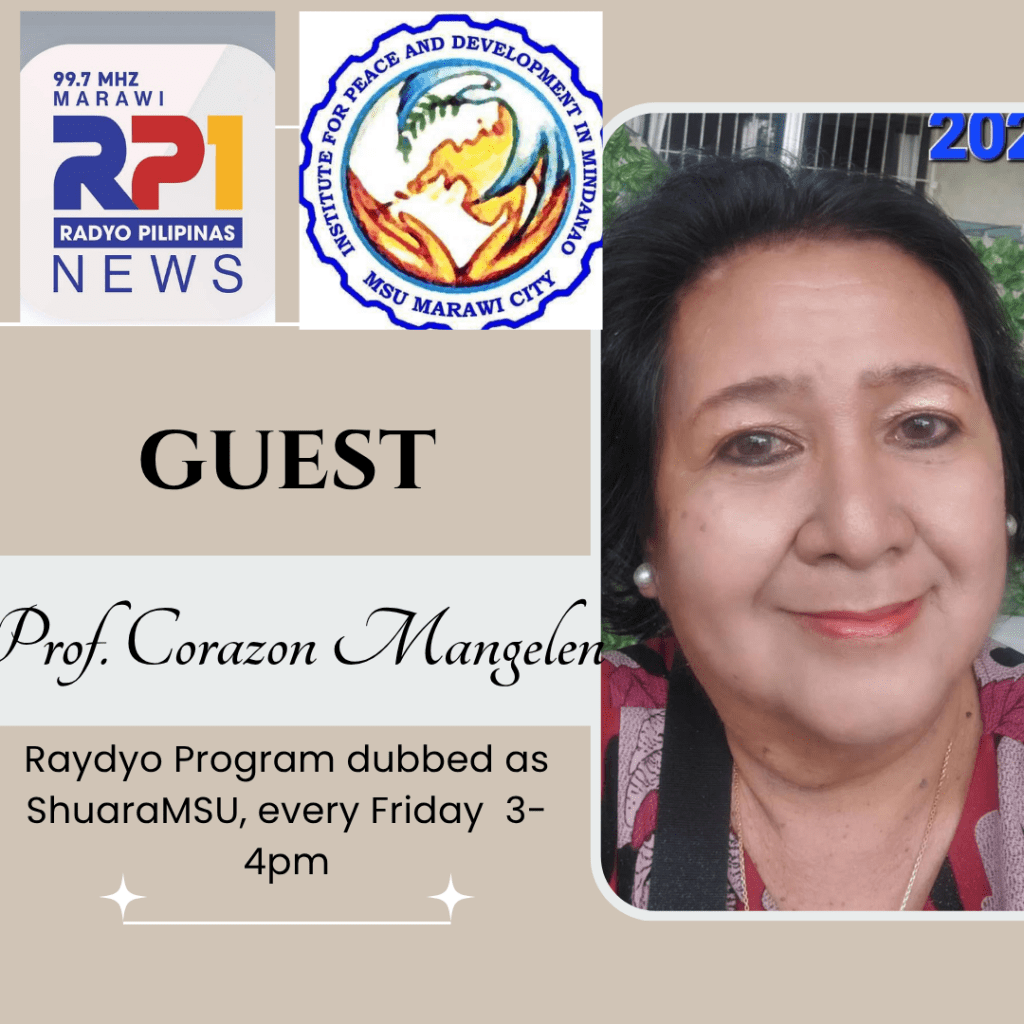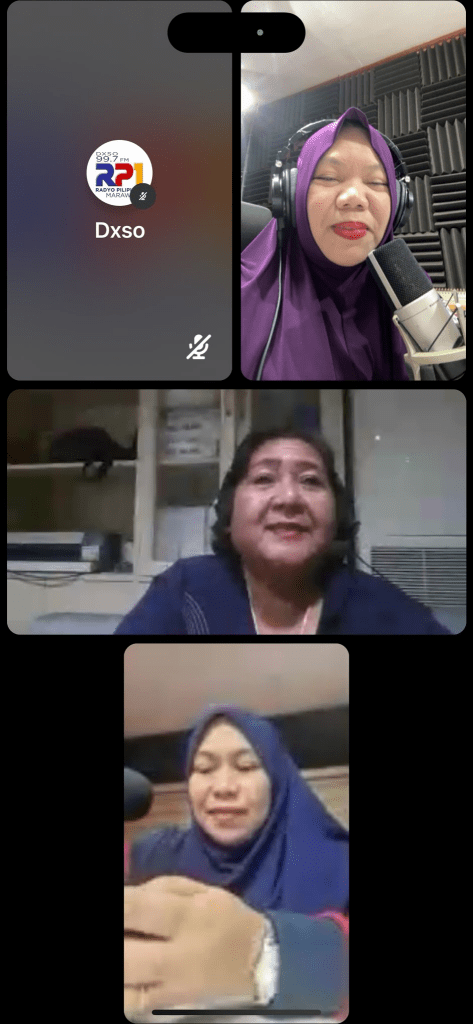Aliah Pacalna Cali-Pascan, JD., DPA
MARAWI CITY, Philippines – In the vibrant, yet still recovering, heart of Marawi, a powerful force for change is quietly at work: Buklod Cooperative. Led by the inspiring Professor Corazon Mangelen, this cooperative is not just about economic empowerment; it’s a testament to resilience, a challenge to societal norms, and a crucial pillar in the ongoing peacebuilding efforts of the city. This special feature is an activity of Peace Action and Shuara MSU in partnership with Radyo Pilipinas.
According to Professor Mangelen, the very genesis of Buklod Cooperative was rooted in a profound desire to dismantle preconceived notions. “Our inspiration,” she shared, “was to change the impression that non-Muslim women married to Muslims are dependent.” This deeply personal motivation underscores a broader vision: to empower these women through sustainable livelihoods, thereby inspiring others to join and recognize their inherent strength and contribution to the community.
Buklod Cooperative caters to two primary types of membership, both enjoying largely similar benefits. One unique category is specifically designed for non-Muslim women married to Muslims, with their children automatically becoming associate members, fostering a sense of belonging and generational support. The other membership type is open to faculty and employees of Mindanao State University (MSU) Marawi, further strengthening the cooperative’s ties within the academic community.
The cooperative’s commitment to its community was particularly evident during the darkest hours of the Marawi siege. Professor Mangelen recounted their direct involvement: “They also helped during the Marawi siege. They gave assistance.” This immediate and selfless response in a time of crisis truly highlights Buklod Cooperative’s dedication to its people.
Despite the monumental challenges that have faced Marawi, particularly in the aftermath of the siege, Buklod Cooperative has maintained its financial robustness. Professor Mangelen proudly stated, “The Buklod has still financial capacity for its business despite the challenges.” This financial stability is a critical factor in their continued ability to provide vital services and support to their members.
Recognizing the need for adaptability and efficiency, the cooperative has made strategic decisions to ensure its operational effectiveness. “We terminated some of the employees who are not needed in the operations,” Professor Mangelen revealed, highlighting a pragmatic approach to resource management. This, coupled with a proactive stance on learning and growth, is key to their sustained success. “We had benchmarking so that we can expand our horizon,” she added, emphasizing their commitment to continuous improvement and exploring new avenues for development.
Beyond their core operations, Buklod Cooperative is deeply committed to social responsibility, dedicating 10 percent of their capacity every year to community-focused initiatives. Professor Mangelen highlighted that all their cooperative staff are capacitated to facilitate and mediate, enabling them to effectively address member needs and contribute to conflict resolution within the community.
Their dedication to peace extends to concrete actions and partnerships. “They support projects like peacebuilding activities,” Professor Mangelen affirmed. This is a consistent effort, as she detailed: “Every Mindanao Week of Peace celebration, we gave assistance. We participated like peacebuilding activities. We actively involved in peace walks, healing trauma activities, uphold protection to women and children, awareness on policies like VAWC [Violence Against Women and Children] and Gender.” Notably, their participation in the Mindanao Week of Peace celebration is often in partnership with the Institute for Peace and Development in Mindanao (IPDM), a testament to their collaborative spirit in fostering regional peace.
Buklod Cooperative also extends its expertise to others, offering coaching and mentoring for new cooperatives, helping to build a stronger cooperative ecosystem in the region. They are heavily involved in financial literacy programs, equipping members with essential knowledge to manage their resources effectively. While they apply the same interest rates as provided by banks, Professor Mangelen underscored their fundamental philosophy: they are not aiming for profits, but for helping members to assist them in livelihood. This commitment to service over profit truly sets them apart.
In a city still navigating the complexities of post-conflict recovery, Buklod Cooperative stands as a beacon of hope and a living example of how community-driven initiatives can pave the way for lasting peace. Through their unwavering dedication to empowering women, fostering financial independence, challenging stereotypes, providing critical assistance during crisis, and actively participating in peacebuilding efforts, Professor Mangelen and Buklod Cooperative are rebuilding not just livelihoods, but also the very foundations of trust and unity in Marawi. Their story is a powerful reminder that true peace blossoms from the roots of economic justice, social inclusion, and a genuine desire to uplift others.


